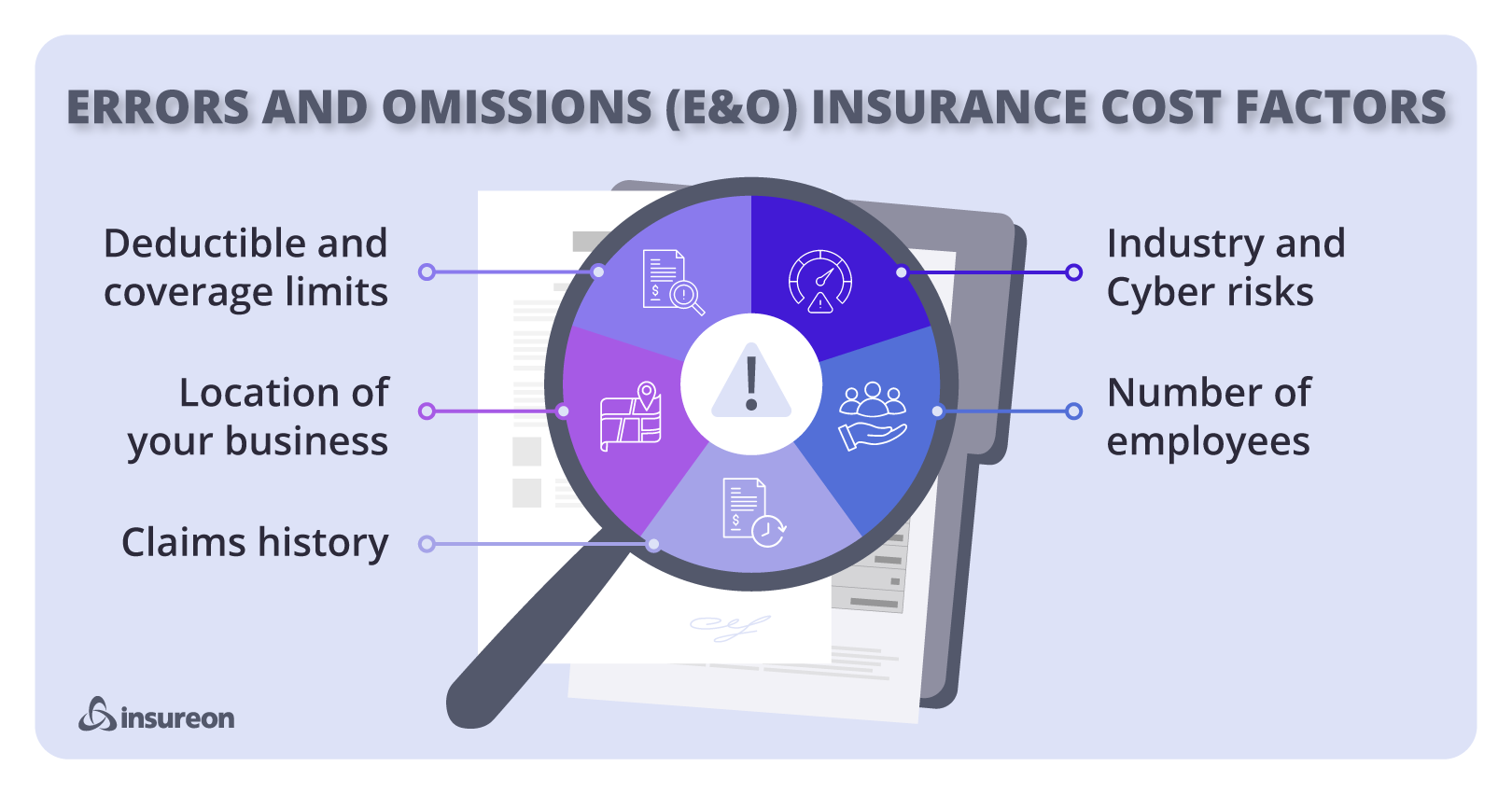
When is errors and omissions insurance required?
Federal and state laws mandate errors and omissions insurance for certain professions. Small businesses may also need it to fulfill the requirements of a client contract or a licensing body.
How does E&O insurance help your risk management plan?
No matter how carefully you manage your books, review your contracts, vet your customers, or monitor your employees, you can't control everything. Errors and omissions insurance (E&O), also called professional liability insurance, protects your cash reserves when a mistake or oversight happens, or your business is accused of inadequate work, and a client sues.
Errors and omissions insurance also protects against accusations of negligence when your business is not at fault. In either case, E&O can help pay for legal defense costs such as attorney's fees, administrative costs, expert witness and consulting fees, court costs, and the eventual cost of a settlement or judgment.
E&O insurance covers professional mistakes and oversights
E&O insurance coverage can help pay your legal fees and other defense costs in the following scenarios:
- A client accuses your IT business of improperly installing software, which made them lose sales while the system was down. They sue you for damages.
- A client follows your advice about how to increase efficiency at their company, but the client ends up incurring more in costs. They blame you and sue for professional negligence.
- A simple typo on your calendar causes you to miss a crucial shipping deadline. The products don't make it to your customer in time, so they sue you for the cost of replacement goods.
Is E&O insurance required by client contracts?
Often, larger contracts or bigger, more sophisticated clients require your business to plan for contingencies by carrying an E&O insurance policy to cover potential mistakes or mishaps. This policy provides your clients with peace of mind since they know your business could withstand a potential lawsuit.

Who needs an errors and omissions insurance policy?
Every industry involves different risks. In certain industries, the risk is so significant that an error or negligent performance on your part could severely impact your client's finances. To address these heightened stakes, some federal and state laws set minimum E&O coverage requirements for certain professions. Note that E&O is also called professional liability insurance or malpractice insurance, depending on the industry.
Examples of professionals required to carry E&O insurance
The following professionals are often required to carry errors and omissions coverage:
- Attorneys are often required by the state or their state's bar association to carry legal malpractice insurance or to report whether they do.
- Medical professionals – i.e., doctors, nurses, and therapists – are required to carry minimum amounts of malpractice insurance in most states. (Note: Insureon does not provide quotes for malpractice insurance.)
- Contractors working on government projects must carry insurance for "the perils to which the contractor is exposed," according to the Federal Acquisition Regulations (FAR) subpart 28.3.
Other laws indirectly touching your industry might make E&O coverage virtually required, too. For example, a mistake made by an accountant or a tax preparer could lead to legal action against a client, which necessitates a sufficient E&O policy.
For other industries, such as insurance professionals and real estate agents, you may see requirements for professional liability insurance, which is another name for E&O insurance. It is important to check the state laws where you are located to ensure you have the required coverage for your business.
What is the difference between professional liability and E&O insurance?
How does your claims history affect E&O insurance rates?
Sometimes, entrepreneurs only buy errors and omissions insurance coverage when they need it to fulfill the terms of a contract. But when that particular job ends, they let the policy lapse, thinking they can just buy another policy later if the need arises.
There are two major problems with this approach:
A history of short-term policy buying makes it increasingly harder to get the next E&O policy
E&O insurance is a claims-made policy
Errors and omissions is a claims-made policy. That means for the provider to cover a lawsuit, the same policy must have been in place both at the time of the incident leading to the claim and when the claim was actually filed.
So even if you've had multiple E&O policies in the past, you're really only protected during your most recent and active policy period up to your coverage limits.
For these reasons, it's best to get one E&O policy and keep it for the entire life of your business.

How do I get errors and omissions insurance?
Complete Insureon’s easy online application today to compare E&O insurance quotes from top-rated U.S. providers. Once you find the right policy for your small business, you can begin coverage in less than 24 hours.
Once you have you coverage, you can also contact an insurance agent to make sure you have E&O and any other necessary business insurance to help your business secure large contracts, comply with legal regulations, and protect your company from litigation disasters.
Verified errors and omissions coverage reviews

Want free expert advice right in your inbox?
By entering your email address and subscribing, you agree to our Terms of Use and Privacy Policy
